A LIST OF BOOKS BY KANSAS AUTHORS CLUB MEMBERS, PAST AND PRESENT
If you have examples of member books to add (your own or a friend's) please put your addition in the comments section.
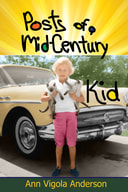 Posts of a Mid-Century Kid, by Ann Vigola Anderson (Anamcara Press, 2021)
Posts of a Mid-Century Kid, by Ann Vigola Anderson (Anamcara Press, 2021) 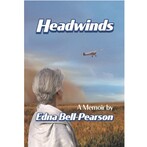 Headwinds: A Memoir by Edna Bell-Pearson (Meadowlark, 2019)
Headwinds: A Memoir by Edna Bell-Pearson (Meadowlark, 2019) 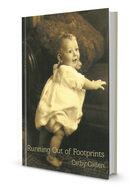 Running Out of Footprints, by Cathy Callen (2013)
Running Out of Footprints, by Cathy Callen (2013) 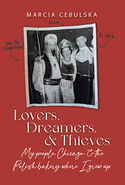 Lovers, Dreams & Thieves, by Marcia Cebulska (Flint Hills Publishing, 2023)
Lovers, Dreams & Thieves, by Marcia Cebulska (Flint Hills Publishing, 2023) 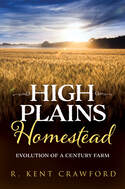 High Plains Homestead, by R. Kent Crawford (Post Rock Press, 2023)
High Plains Homestead, by R. Kent Crawford (Post Rock Press, 2023) 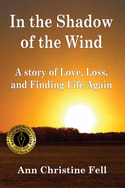 In the Shadow of the Wind, by Ann Christine Fell (2014)
In the Shadow of the Wind, by Ann Christine Fell (2014)  And I Cried, Too, by Mike Hartnett (Meadowlark Press, 2020)
And I Cried, Too, by Mike Hartnett (Meadowlark Press, 2020) 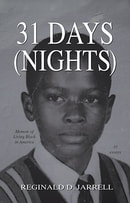 31 Days (Nights), by Reginald Jarrell (Blue Cedar Press, 2022)
31 Days (Nights), by Reginald Jarrell (Blue Cedar Press, 2022) 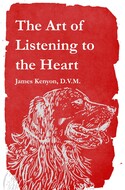 The Art of Listening to the Heart, by James Kenyon (2016/ 2022)
The Art of Listening to the Heart, by James Kenyon (2016/ 2022) 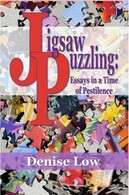 Jigsaw Puzzling: Essays in a Time of Pestilence, by Denise Low (Meadowlark Press, 2022)
Jigsaw Puzzling: Essays in a Time of Pestilence, by Denise Low (Meadowlark Press, 2022) 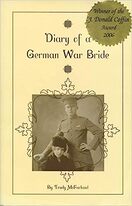 Diary of a German War Bride, by Trudy McFarland (2006)
Diary of a German War Bride, by Trudy McFarland (2006) --Evie Green, Coordinator of Write Stuff
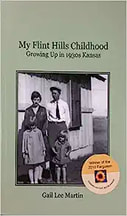 My Flint Hills Childhood, by Gail Lee Martin (Blurb, 2009)
My Flint Hills Childhood, by Gail Lee Martin (Blurb, 2009) 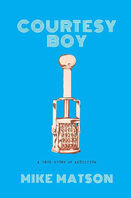 Courtesy Boy: A Memoir of Addiction, by Mike Matson (Flint Hills Publishing, 2021)
Courtesy Boy: A Memoir of Addiction, by Mike Matson (Flint Hills Publishing, 2021) 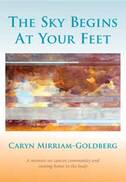 The Sky Begins At Your Feet, by Caryn Mirriam-Goldberg (Ice Cube Press, 2009)
The Sky Begins At Your Feet, by Caryn Mirriam-Goldberg (Ice Cube Press, 2009) 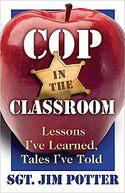 Cop in the Classroom, by Sgt. Jim Potter (Sandhenge Publications, 2007)
Cop in the Classroom, by Sgt. Jim Potter (Sandhenge Publications, 2007) 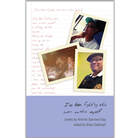 I've been fighting this war within myself, poetry by Antonio Sanchez-Day (Meadowlark Press, 2023)
I've been fighting this war within myself, poetry by Antonio Sanchez-Day (Meadowlark Press, 2023) 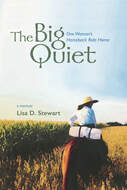 The Big Quiet: One Woman's Horseback Ride Home, by Lisa D. Stewart (Meadowlark Press, 2020)
The Big Quiet: One Woman's Horseback Ride Home, by Lisa D. Stewart (Meadowlark Press, 2020) 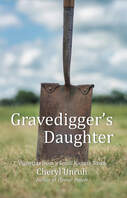 Gravedigger's Daughter, by Cheryl Unruh (Meadowlark Press, 2021)
Gravedigger's Daughter, by Cheryl Unruh (Meadowlark Press, 2021) 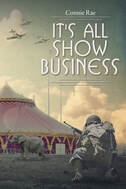 It's All Showbusiness, by Connie Rae (Page Publishing, 2019)
It's All Showbusiness, by Connie Rae (Page Publishing, 2019) 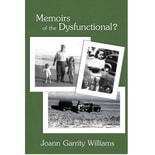 Memoirs of the Dysfunctional? by Joann Garrity Williams (Meadowlark, 2018)
Memoirs of the Dysfunctional? by Joann Garrity Williams (Meadowlark, 2018) 
 RSS Feed
RSS Feed